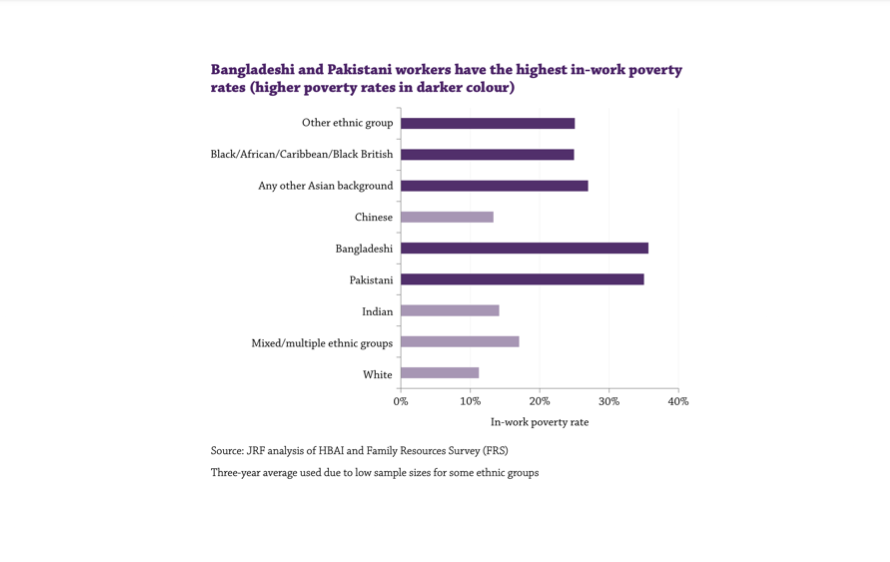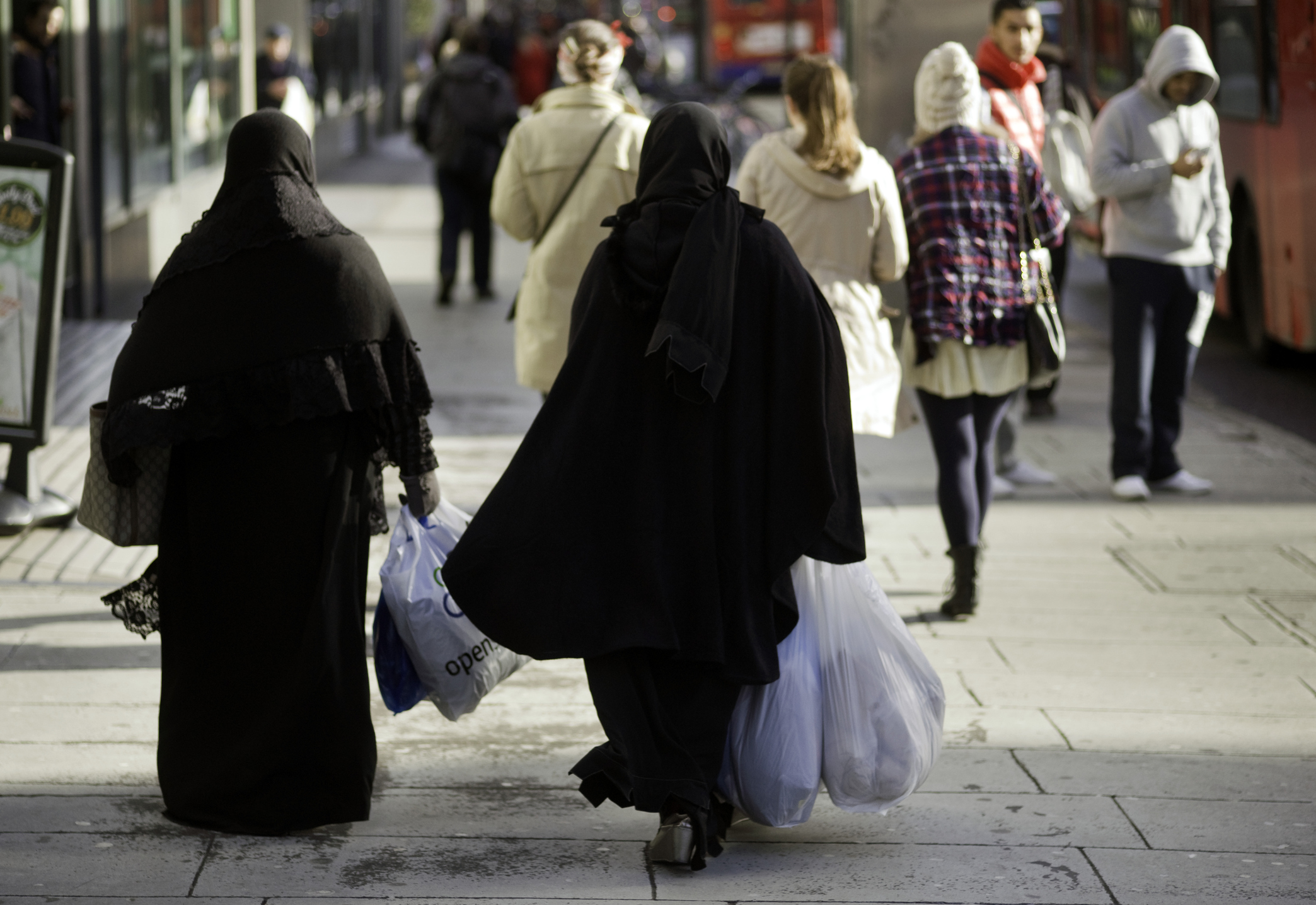Poverty rates for Bangladeshi and Pakistani communities in the UK are higher than for other ethnic groups, according to a shocking new report on poverty.
These groups are also more likely to have higher rates of in-work poverty and child poverty.
Bangladeshis and Pakistanis make up over half the Muslim population in the UK, according to the 2011 Census.
The research by the Joseph Rowntree Foundation found that poverty rates for the Bangladeshi and Pakistani ethnic groups are 53% and 48% respectively. This compares very poorly to the white group, where it is 19%, which shows deep differences between the ethnic groups.
“Poverty rates between ethnic groups vary significantly, with some groups at a much higher risk of poverty than others. Highlighting and understanding these differences is essential to solving poverty in the UK,” says the report.
It also adds: “We are likely to see individuals in Bangladeshi, Pakistani and Black families continuing to have higher poverty rates (over 40% for individuals in households headed by someone of each of these ethnicities) and worse outcomes across many areas.”
The damning new report found that overall 1.8 million children are growing up in ‘deep poverty’ in the UK – a shocking increase of 500,000 children since 2011.
In-work and child poverty
Ethnic minorities are also more likely to have higher rates of in-work poverty and child poverty, in part due to being self-employed and working in low-paying sectors.
For example, the in-work poverty rate is highest for Pakistani and Bangladeshi workers, at about 34%.

According to the Runnymede Trust, a third of Bangladeshi men work in catering, restaurants and related businesses while 1 in 7 Pakistani men work in taxi, chauffeuring and related businesses.
The pay gaps between women and men by ethnicity also show distinct differences.
On average, men earned a higher hourly median wage than women in all but three ethnic groups in 2019: Black Caribbean, Arab and Bangladeshi.
Although Bangladeshi women earned a similar amount to men, they are both on a low average wage compared with other groups.
Other factors
The report says household composition is a key driver of poverty for Black, Asian and minority ethnic (BAME) households and they are more likely to be single-earner households.
Around two-thirds of white households have all adults in work, compared with only around half of BAME households.
Other factors make it more likely for ethnic minorities be living in poverty, including:
More than a quarter of BAME working adults spend over a third of their income on housing, compared with just over 1 in 10 white workers.
BAME workers in the lowest-paid occupations are more likely to face unaffordable housing costs than white workers in the same occupations or white workers on average.
They are also more likely to live in places with higher housing costs (for example London) and more likely to live in multi-generational households/ families which incur higher housing costs.
Eight in 20 households affected by the benefit cap in England are BAME even though BAME households represent only 3 in every 20 of all households.












